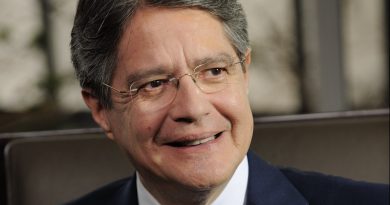Obama and Merkel Diverge on Ukraine Plan
By Cynthia Sularz
Staff Writer
On February 10, German Chancellor Angela Merkel and United States President Barack Obama displayed their disagreement over Ukraine at a White House press conference. Chancellor Merkel, whose visit to Washington was only a quick stop while shuttling between Kiev and Moscow, emphasized that the European Union will continue focusing on diplomatic means to diffuse tensions between Russia and Ukraine. However, as CNN reports, President Obama explained that although a decision has not been made there is a chance of U.S. military entry into Ukraine.
The situation in Ukraine seems to come straight out of a history book. As time passes, parallels to the past continue to become apparent. The fall of the Russian Economy, the advance of the Russian military to Ukraine, and the coalition of Western states pledging support of Ukraine’s sovereignty are reminiscent of the Cold War.
In 2005, the European Commission, the European Union’s legislative body, pledged their support to Ukraine not only through short-term means, but also through long-term methods. The goal of MEMO/14/346 by the European Commission was to detail a plan of action ensuring Ukraine’s unity and economic stability. During the past year, the Commission has been building a series of concrete measures to aid Ukraine’s economy, while also insisting on the unification of the state in order to benefit all Ukrainians. The most recent proposal on January 8 of this year focused on stimulating the Ukrainian
economy. According to an EU press release, the Commission also formed a Support Group working specifically on Ukraine’s situation even before then.
Currently, the European Union’s relations with Ukraine are governed by the Association Agreement, which includes Comprehensive Free Trade Areas. This became official on March 21, 2014, stating to the international community that Ukraine was intent on pursuing political and economic association with the European Union. Since the crisis, the European Union has invested its finances in Ukraine through humanitarian aid, macro-financial assistance, grants for state-building, energy security and reform, anti-corruption mechanisms, and mobility from the region to the rest of the European Union.
As the situation becomes more uncertain, the talk of military involvement has moved to the forefront of discussion. As the United States begins to threaten Russian President Vladimir Putin with military force, Reuters reports that Chancellor Merkel warned the European Union, “If we don’t manage to find not just a compromise but a lasting peace agreement, we know perfectly well what the scenario will be. It has a name: it’s called war.”
Until now, the United States has aided Ukraine only by supplying first aid kids, body armor, and night vision goggles. Newly confirmed U.S. Defense Secretary Ashton Carter was asked recently about whether the United States should send arms to Ukraine.
“I very much incline in that direction,” Mr. Carter responded, according to Al Jazeera. “I incline in the direction of providing them with arms, including what I’m sure your question is, lethal arms.”

